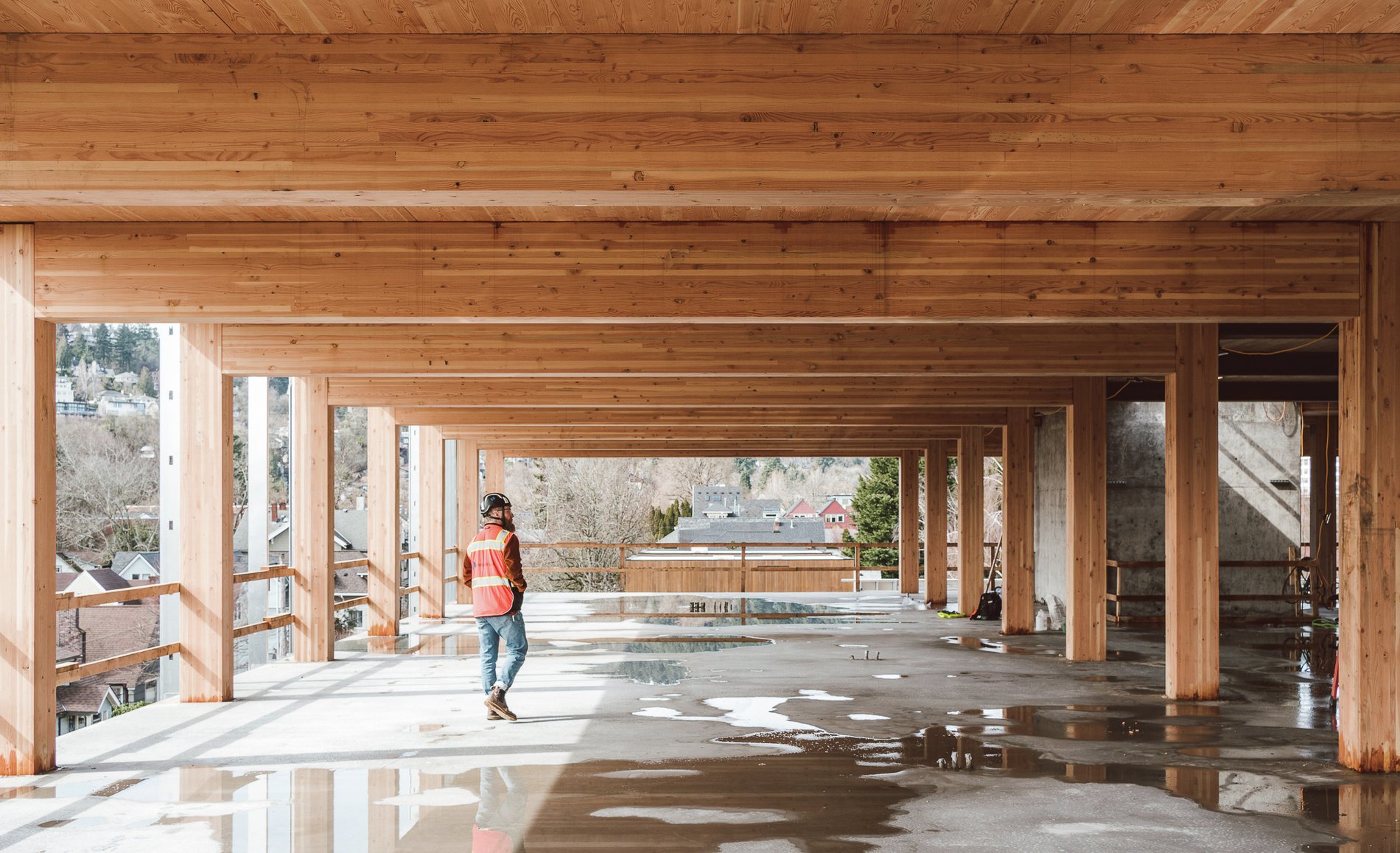
LEVER and engineering firm Atelier Ten have jointly released a report challenging prevalent misconceptions surrounding mass timber construction. The report aims to foster a more nuanced dialogue within the industry, shedding light on four myths associated with mass timber.
Firstly, the assertion that "mass timber buildings are carbon neutral" is debunked, emphasizing the need to consider various life cycle factors beyond construction. To achieve carbon neutrality, the report advocates for transparency from manufacturers on the carbon footprint of interior products and mechanical equipment.
Secondly, the misconception that "wood is always more sustainable than concrete" is challenged by highlighting the importance of material sourcing and emissions from transportation. The report advises design teams to optimize both wood and concrete technologies for a project's carbon impact.
The third myth, "mass timber buildings absorb carbon emissions," is clarified by pointing out that while timber buildings store carbon from trees, they do not actively absorb carbon. Mass timber's popularity for carbon storage is acknowledged, with the recommendation to source FSC-certified timber and consider end-of-life treatment to preserve carbon sequestration.
Lastly, the myth that "all wood is good wood" is dispelled, underscoring the significance of forestry practices in determining the sustainability of wood products. The report urges design teams to support forests managed for longer harvest rotations and to choose FSC-certified wood from ecologically valuable and wildfire-resilient forests, promoting a thoughtful approach to material choices that align with sustainable forest management practices.